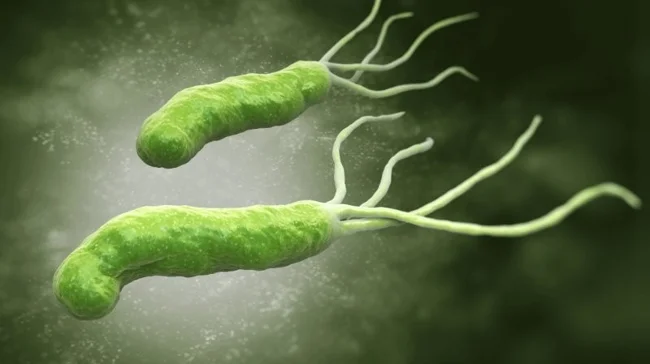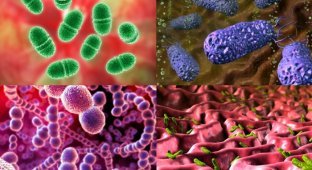Doctors warn: millions of people are at risk of developing stomach cancer due to a common infection (3 photos)
A common bacteria responsible for nearly half of stomach cancer cases could kill millions of people in the coming years. Many people infected have no obvious symptoms, often experiencing only common problems such as upset stomach, bloating or nausea. 
Helicobacter pylori (H. pylori) is estimated to cause 76% of stomach cancer cases worldwide.
A team of scientists is calling for increased screening for the cancer-causing bacteria, which can be detected in blood, breath or stool samples. This could save lives.
Experts at the World Health Organization's International Agency for Research on Cancer (IARC) have warned that without intervention, nearly 12 million people born between 2008 and 2017 could develop stomach cancer caused by the bacterium H. pylori. 
H. pylori is transmitted from person to person through contaminated food and water, as well as through contact with an infected person.
Experts said most of the projected 12 million cases of stomach cancer would be in Asia, 2 million in the Americas, and 1.2 million in Europe.
Studies show that infection increases the risk of stomach cancer by six times. However, antibiotic treatment significantly reduces this probability.
The IARC team studied the current incidence rates of stomach cancer in 185 countries in 2022 and used this data to predict the number of cases in the coming years. It turned out that 75% of stomach cancer cases can be prevented worldwide by implementing screening programs.
The author of the work, Jin Young Park, emphasized: “Health authorities need to make the prevention of stomach cancer a priority and intensify the fight against it. It is important to develop pilot and feasibility projects, including screening and treatment programs for H. pylori infection.”
“While this is an important problem worldwide, there are other preventable risk factors,” notes British doctor Rachel Orritt. “It is important to quit smoking, maintain a healthy weight, avoid alcohol and eat a balanced diet.” 
The main symptoms of stomach cancer are heartburn or acid reflux, trouble swallowing, feeling unwell, indigestion, belching, and feeling full very quickly while eating.
These symptoms are common and are usually associated with other diseases. However, if they persist for more than three weeks, it is recommended to see a doctor.
Other symptoms include loss of appetite or weight loss for no apparent reason, abdominal pain, a feeling of a lump in the upper abdomen, and extreme fatigue.
Only 17% of patients with stomach cancer, or one in six, survive another 10 years after diagnosis.






























